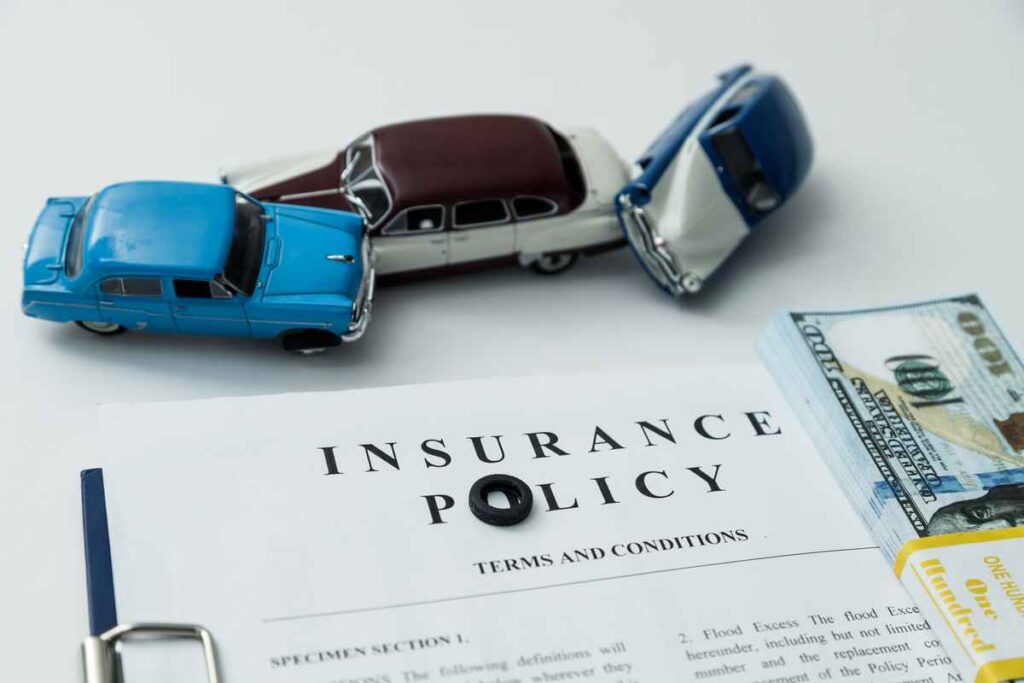If you live in New Jersey, you should know about NJ minimum auto insurance requirements. The state laws regulate all drivers to have car insurance, including liability and personal injury protection (PIP) coverages. You can add uninsured motorist, accident, and other coverages to your policy, although those are not mandatory in the state.
Liability auto insurance coverage is mandatory in the state. This ensures that the financial costs will be addressed if you get into a collision and hurt someone or damage their property. This is why the state set the minimum insurance requirements.
New Jersey also allows insurance companies to conduct auto insurance scoring to help them set insurance rates. This scoring works by combining your credit information and accident history. Then they will determine whether you are a high-risk or low-risk driver and set your rates accordingly.
NJ Minimum Auto Insurance Requirements

Auto insurance in New Jersey is complicated. They provide two options of policies which are Standard Policy and Basic Policy. Plus, their minimum coverage limits depend on the type of policy you choose.
Below are the minimum auto insurance requirements in New Jersey:
- For bodily injury liability, it is $10,000 up to $50,000 per accident.
- For property damage, liability is $5,000 per accident.
- For Personal Injury Protection (PIP), it is $15,000 per accident.
Basic Policy vs. Standard Policy
By now, you have learned about the minimum insurance requirements in New Jersey. But, you might still wonder about the difference between Basic and Standard Policies and which one you should choose.
Basic Policy
The first difference between the two policies is basic policy is cheaper than the standard one. Although it is cheaper, you won’t get several coverages that come with the standard policy.
Generally, you will get the following coverage from the Basic Policy.
– Property damage liability: $5,000 coverage limit per collision
– Personal injury protection: $15,000 coverage limit per person and collision. If the collision cause the other person to suffer severe injuries, your insurer will cover up to $250,000. Severe injuries include spinal cord damage, significant brain injury, and other permanent injuries that require care at an acute-care hospital or trauma center.
This policy does not include bodily injury liability. You can add another $10,000 coverage limit per accident if you want.
Standard Policy
This policy is quite similar to other minimum policies in other states, which include bodily injury, unlike basic policy. The difference relies on the option where drivers in New Jersey can lower their premium by asking to limit their right to sue for pain and suffering after a collision.
The details of Standard Policy coverage are:
– Bodily injury liability: a minimum of $25,000 and a maximum of $250,000 coverage limit per person. Meanwhile, this policy will cover a minimum of $50,000 and a maximum of $500,000 total coverage per accident.
– Property damage liability: a minimum $5,000 coverage limit per accident.
– Personal injury protection: a minimum of $15,000 and a maximum of $250,000 coverage limit per person, per accident. Plus, you will receive up to $250,000 for severe injury claims.
Those are all about NJ minimum auto insurance requirements. Now, let’s move on to the curious topic regarding minimum auto insurance in the state.
The Cost of Minimum Auto Insurance in New Jersey
Depending on several factors, auto insurance costs in New Jersey are varied. Those factors include age, driving history, make and model of vehicle, credit score, and ZIP code. Different companies also have different rates based on those factors.
The cheapest minimum auto insurance in the state comes from GEICO, which is about $499 per year on average. The price is only an estimation and cannot be used to compare prices with other companies.
Plus, the price is based on a driver aged 40, driving Toyota Camry from 2010 with good credit and a clean driving record. Meanwhile, drivers with different vehicles and driving histories will have different prices.
NJ Minimum Auto Insurance Requirements from a Leasing Company

The leasing company may have different insurance requirements when you lease a car. The requirements will mostly be a full coverage policy with 100/300/100 minimum liability limits. Before choosing a leasing company, it is advised that you consult the terms of the leasing agreements in detail.
Although most companies will have 100/300/100, you can and are advised to get a full coverage policy with 50/100/50 liability limits. Full coverage is always an option to protect you and the vehicle in a collision.
Auto Insurance Scoring
Auto insurance scoring is a method insurance companies use to calculate your premiums. The scores are mostly based on the information in your credit report. After obtaining the score, they will determine your premium accordingly.
A higher score in credit reports indicates lower risk, and a lower number indicates higher risk. The risk refers to how likely you are to get involved in a collision. If you are a high-risk driver, you will likely get a high premium. After that, they will combine the score with standard rating factors, including gender, driving history, and location.
The score and standard rating factors are commonly used to determine your premium. Some companies, however, don’t use this information and develop their scoring models instead.
Nevertheless, the state regulates all insurance companies to share their scoring models with their policyholders and the state’s Department of Banking and Insurance. The state also requires all insurers to exclude the following factors in scoring.
– Demographic information: this includes gender, age, race, religion, income, and address. Generally, some of these factors can affect your premium.
– Unpaid medical bills.
– The number of inquiries for auto and home loans made within the last thirty days.
– Serious life events, like temporary loss of employment, catastrophic illness or injury, divorce, and death of a family member. If you experience one of these events, your insurer should exclude this information in insurance scoring.
NJ auto insurance requirements are indeed different from other states. But, the difference exists to help the policyholders get the protection they deserve.
